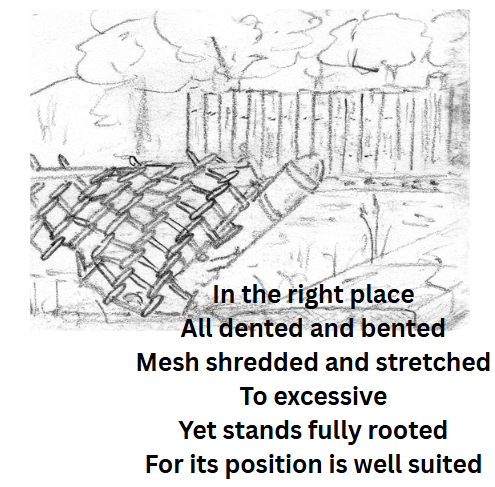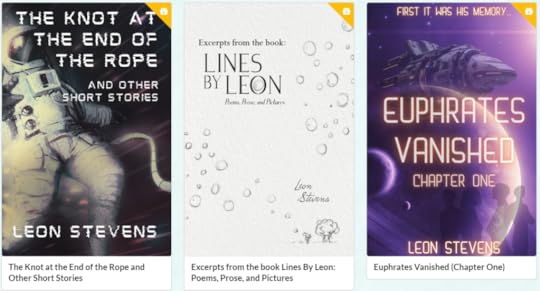Weird Wednesday: Weird Poems

How do you make someone dislike poetry? Well, if you are ee cummings, you write “grasshopper”, then wait 100 years and ask someone on Reddit to tell you WTF it’s supposed to mean. And after you don’t read the following analysis, you say, “I just want my poems to rhyme. Is that too much to ask?!”
ee cummings is infamous for his use of form to create meaning throughout his poems. i recommend reading the poem once through, pausing a moment, then reading it through again to see how, at first blush, it makes you feel. i love cummings but have never encountered this poem before, so ill take you through the steps i took to arrive at my own meaning for this poem. after all, one of the key points of poetry is to get you to look at the world in a new and different way, so let’s see what we’ve got here.
First Glance and gut reactions: what the fuck? i know from my own experience that cummings is an avant gard poet, and that none of his previous poems have been completely devoid of meaning. so there’s something going on, but right now i’m at a loss.
Trying to piece it together: i’ve noticed a clue in the last line: grasshopper. cummings carefully placed this at the end – he wanted to evoke a sense of misunderstanding and confusion for the early parts of the poem, but no one can understand completely incoherent babble. stretching my brain, i remember solving anagrams in my youth. this substance of this poem is seemingly about grasshoppers, and a few of the anagrams can be directly translated into “grasshopper” in lines 1, 5, and 12.
line 2-5: poem has something to do with grasshoppers. line 2-4 seems, to me, to be trying to say “who (the grasshopper) as we (the speaker and company) look up now at the” this personifies the grasshopper, and interestingly, we (so the speaker is not alone in his musings) appear to be looking up at him? instead of down at him. curious, as grasshoppers typically down on the ground, but maybe that’s just how high/impressively the hopper is hopping. note the jarring introduction of line 5 – and in all caps too! you could say that this line behaved almost like a grasshopper, erratically jumping from place to place. and would you look at that, it moved so quickly, it seemed to have cut off the e (and the speaker’s line of thought) from the word “the” in line 4. cheeky little bastard.
line 6-10: this line starts with an “e” – maybe its the missing e from before? and then it says something like “ring into the leaps!” Ring is an interesting way to describe how a grasshopper moves, but much like a bell resonates after it rings, so too does a blade of grass oscillate back and forth after something flicks off from it. I can buy this.
lines 10.5-14: notice the lone “a” at the end of line 10. Then there are some parentheses. cummings used some parentheses earlier and i sort of just ignored them because it was convenience (but then, we really hadn’t been formally introduced to the grasshopper yet – they are pretty easy to ignore if you don’t study them closely.) But now I feel like we should pay attention to it because the poem doesnt make much sense otherwise. Line 14 is hard to parse out – let’s skip the final anagram of grasshopper in line 12. the poem basically reads like this now: a (rrIvInG) to rea(be)rran(com)gi(e)ngly
That first bit looks an awful lot like the word arriving. And you arrive at locations, so that “to” makes sense, too. Those other words in parentheses at the end seem to spell out the word “become.” Let’s rearrange this a bit: “arriving to rearrangingly become” and then, the final word “grasshopper.”
well that was unexpected to say the least. the word “re-arranging-ly” just popped up. and that’s what ive been doing this whole time. rearranging how i’ve been taught to understand and read english to understand this poem.
i have no idea if any of this is the literary canon for this poem, but this is what i, as an independent reader, have gotten from this poem. in my short analysis I feel like ive missed some key things in the middle of the piece, but i feel satisfied for now. maybe later, ill come back and revisit this poem, with new thoughts to glean a new truth.
so what do i think this poem is “about?” i think its about a little insect we often don’t pay any attention to until someone writes a poem about it – all it does is eponymously hop from grass to grass blade, which seems so mundane and insignificant. but after experiencing this poem, ill never look at one the same way. congrats, ee cummings.
ps as cummings just showed, pun]ctuation, proper grammar, good en{g}lish. dont me/an (an!yth-in;,g) aslongasyour(audience)understands what youre trying to convey.
No, I really didn’t expect you to read all that. I didn’t. But you’ll notice that he avoids certain conventions. Well, all conventions.
Some of my poetry can be weird, or odd, because I don’t often think about conventions when I write poetry, I just get an idea and let the flow determine what form the poem will take. Some of my poems rhyme like more conventional forms, but many are more erratic.

So, what does this poem mean? It means I saw a mangled fencepost, sketched it, then thought it would be a good was to use the made up word “bented.”
That’s it.
Really.
-Leon


Leon Stevens is a multi-genre author, composer, guitarist, songwriter, and an artist, with a Bachelor of Music and Education. He published his first book of poetry, Lines by Leon: Poems, Prose, and Pictures in January 2020, followed by a book of original classical guitar compositions, Journeys, and a short story collection of science fiction/post-apocalyptic tales called The Knot at the End of the Rope and Other Short Stories. His newest publications are the novella trilogy, The View from Here, which is a continuation of one of his short stories, a new collection of poetry titled, A Wonder of Words, and his latest sci-fi mystery, Euphrates Vanished.
My new book page: http://books.linesbyleon.com/

Free books? Sign up for my bi-weekly newsletter and choose one or more!
books.linesbyleon.com/Newslettersignup

Join my email list
RECEIVE A FREE EBOOK WHEN YOU SUBCRIBE TO MY WEEKLY NEWSLETTER
Processing… Success! You're on the list. Whoops! There was an error and we couldn't process your subscription. Please reload the page and try again.Leon Stevens is a multi-genre author, composer, guitarist, songwriter, and an artist, with a Bachelor of Music and Education. He published his first book of poetry, Lines by Leon: Poems, Prose, and Pictures in January 2020, followed by a book of original classical guitar compositions, Journeys, and a short story collection of science fiction/post-apocalyptic tales called The Knot at the End of the Rope and Other Short Stories. His newest publications are the novella trilogy, The View from Here, which is a continuation of one of his short stories, a new collection of poetry titled, A Wonder of Words, and his latest sci-fi mystery, Euphrates Vanished.
My new book page: http://books.linesbyleon.com/

Free books? Sign up for my bi-weekly newsletter and choose one or more!
books.linesbyleon.com/Newslettersignup




